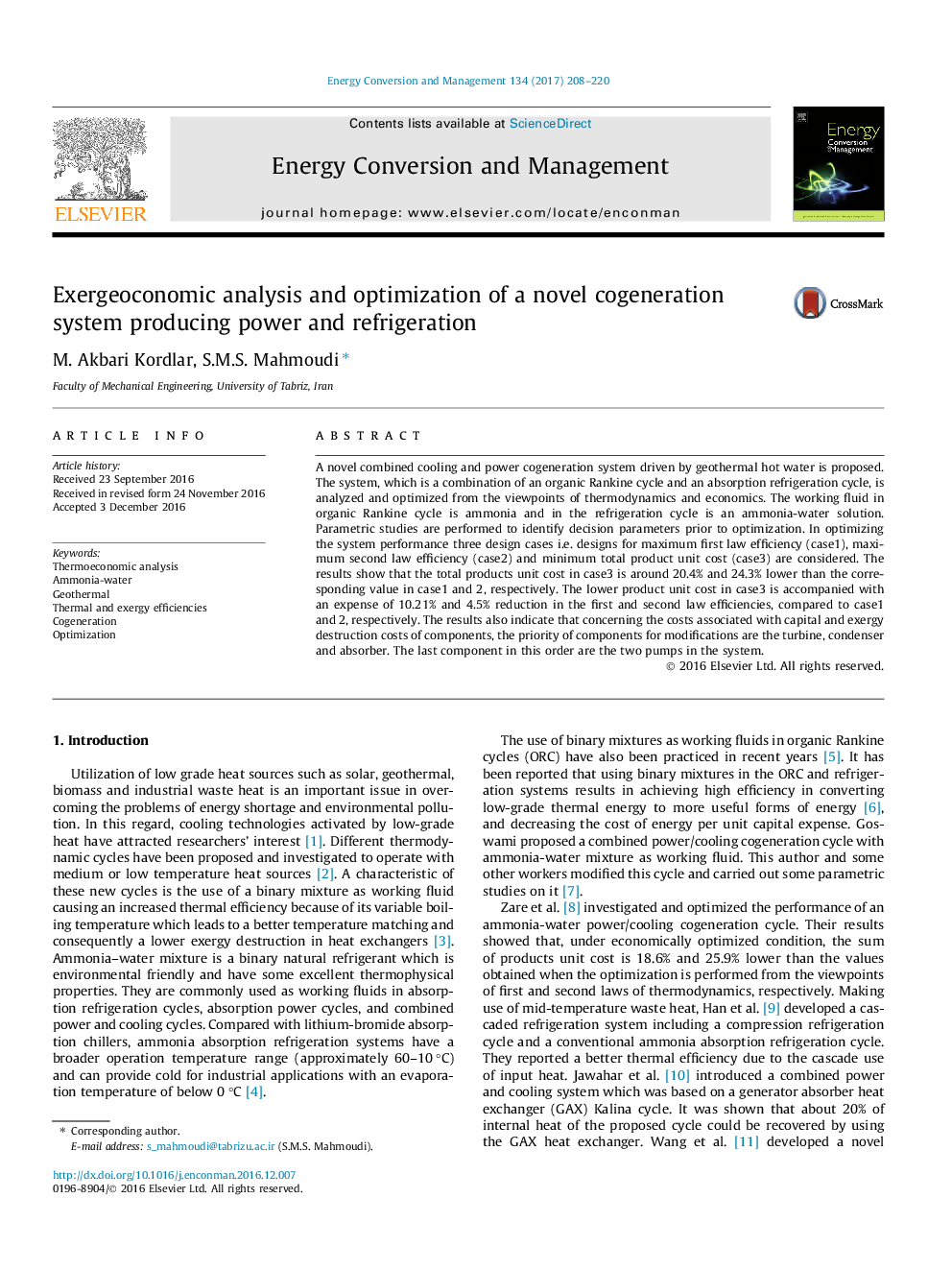| Article ID | Journal | Published Year | Pages | File Type |
|---|---|---|---|---|
| 5013057 | Energy Conversion and Management | 2017 | 13 Pages |
Abstract
A novel combined cooling and power cogeneration system driven by geothermal hot water is proposed. The system, which is a combination of an organic Rankine cycle and an absorption refrigeration cycle, is analyzed and optimized from the viewpoints of thermodynamics and economics. The working fluid in organic Rankine cycle is ammonia and in the refrigeration cycle is an ammonia-water solution. Parametric studies are performed to identify decision parameters prior to optimization. In optimizing the system performance three design cases i.e. designs for maximum first law efficiency (case1), maximum second law efficiency (case2) and minimum total product unit cost (case3) are considered. The results show that the total products unit cost in case3 is around 20.4% and 24.3% lower than the corresponding value in case1 and 2, respectively. The lower product unit cost in case3 is accompanied with an expense of 10.21% and 4.5% reduction in the first and second law efficiencies, compared to case1 and 2, respectively. The results also indicate that concerning the costs associated with capital and exergy destruction costs of components, the priority of components for modifications are the turbine, condenser and absorber. The last component in this order are the two pumps in the system.
Related Topics
Physical Sciences and Engineering
Energy
Energy (General)
Authors
M. Akbari Kordlar, S.M.S. Mahmoudi,
